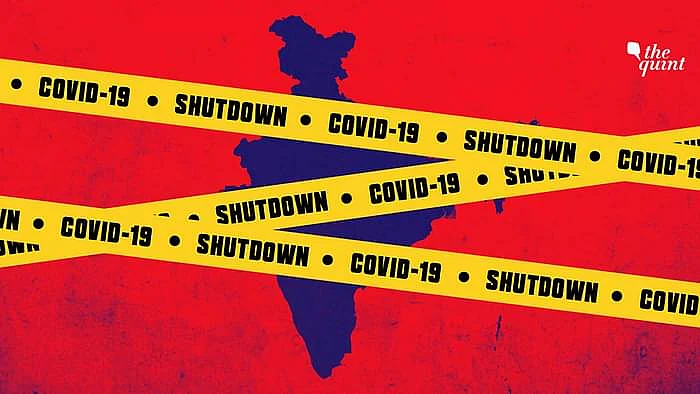Imagine a hypothetical situation to understand the effects of interstate travel. If three roommates live with each other in a house with three separate rooms, and there is the perception that one of them is COVID-positive.
A self-imposed ‘lockdown’ within the house or self-quarantine for 14 days might go a long way in helping all three of them emerge from their rooms safely, without even knowing who had the infection to begin with. Hence, from the 15th day onwards, the friends may be able to eat, drink and dine together, without (much) worry of transmission –– and can eventually go back to ‘normal’ life, with precaution.
But if on the 16th day, you bring in a ‘foreign entity’ into the house (say a domestic worker), the effect of the self-imposed lockdown will be neutralised, and the house will again be at risk of increased transmission, which will increase the need for another lockdown.
Reduce High-Density Population Movement
Say bringing in the domestic help is an essential need, and you want them to continue coming to the house every day from the 16th day (post-self-quarantine), would you be comfortable with them travelling by their own vehicle or in a crowded bus ? The answer is definitely the former.
One would thus have to stop movement that is ‘high-density’ to reduce the scope of transmission, or have ‘outsiders’ before entering one’s home.
This will be a problem in a loop if you practice lockdown with your gates completely open, without any restrictions. Although one can’t be totally paranoid at one’s own home, one would have to be doubly careful when it comes to controlling boundaries of large states / union territories and big cities.
Thus, the same analogy should be applied to the states where a persistent control over the state is required for them to have some control over the transmission of the disease and optimise bed-capacity requirements at hospitals.
Follow Dharavi’s Example
The prime responsibility of the state authorities should be to restore ‘normalcy’ within the states first before opening the gates for public transport by air, train or bus, which is exactly what is being practised at the country-level.
Why discard the same philosophy adopted at the country-level and disregard it when it comes to the states, specially when the size and population of the states is equal to that of several European countries.
Please notice that the population of Maharashtra is equivalent to that of Japan, whereas Karnataka, Tamil Nadu are very similar in size to the UK, Germany and South Korea. South Korea and Japan have been outliers, as they have been able to do a commendable job of keeping the numbers low since the very beginning.
Many naysayers point out how the density of the population is very high in India as compared to others such as South Korea, and thus, forming a blueprint is very tough.
The answer to that question is the success story of Dharavi in Mumbai, which is possibly among the most high-density populations on the planet, and their commendable success in lowering the rate of transmission. The UK, Germany were in a graver situation as of 24 March 2020 than some of our similar-sized states like Maharashtra and Tamil Nadu, but our new cases per day in these states as of 20 July seem to have overtaken them by leaps and bounds.
Inter-State Travel Must Stop To Flatten COVID Curve –– Only Lockdowns Won’t Help
Bengaluru was able to manage the situation very well till the time they opened up flights / train travel to other states, and are now grappling with the possibility of another lockdown as the cases reach 1000 a day.
When so many countries have managed to flatten the curve and bring it back to ‘manageable’ levels, it seems that India’s tryst with rapid transmission of the COVID-19 virus has just picked up pace.
If inter-state travel should continue, it should be mandatory for those travelling to carry a (recent) clearance certificate (that is, a negative COVID test result), as asymptomatic carriers can’t get detected in casual airport checks.
Germany, which is the size of Tamil Nadu, is already asking for negative PCR tests at Munich and Frankfurt airports. Even if you don’t want to go that far off from India, our very own Goa government is asking for a negative COVID report to be carried by travellers. In the absence of such a blanket policy across states, it’s highly recommended to discontinue inter-state travel with immediate effect.
(Disclaimer: A longer form of this article was originally published on the author’s blog on Medium, and has been republished with permission.)
(Geetansh Bamania is the Founder of RentoMojo. He tweets @GeetanshBamania. This is an opinion piece, and the views expressed are the author’s own. The Quint neither endorses nor is responsible for them.)
